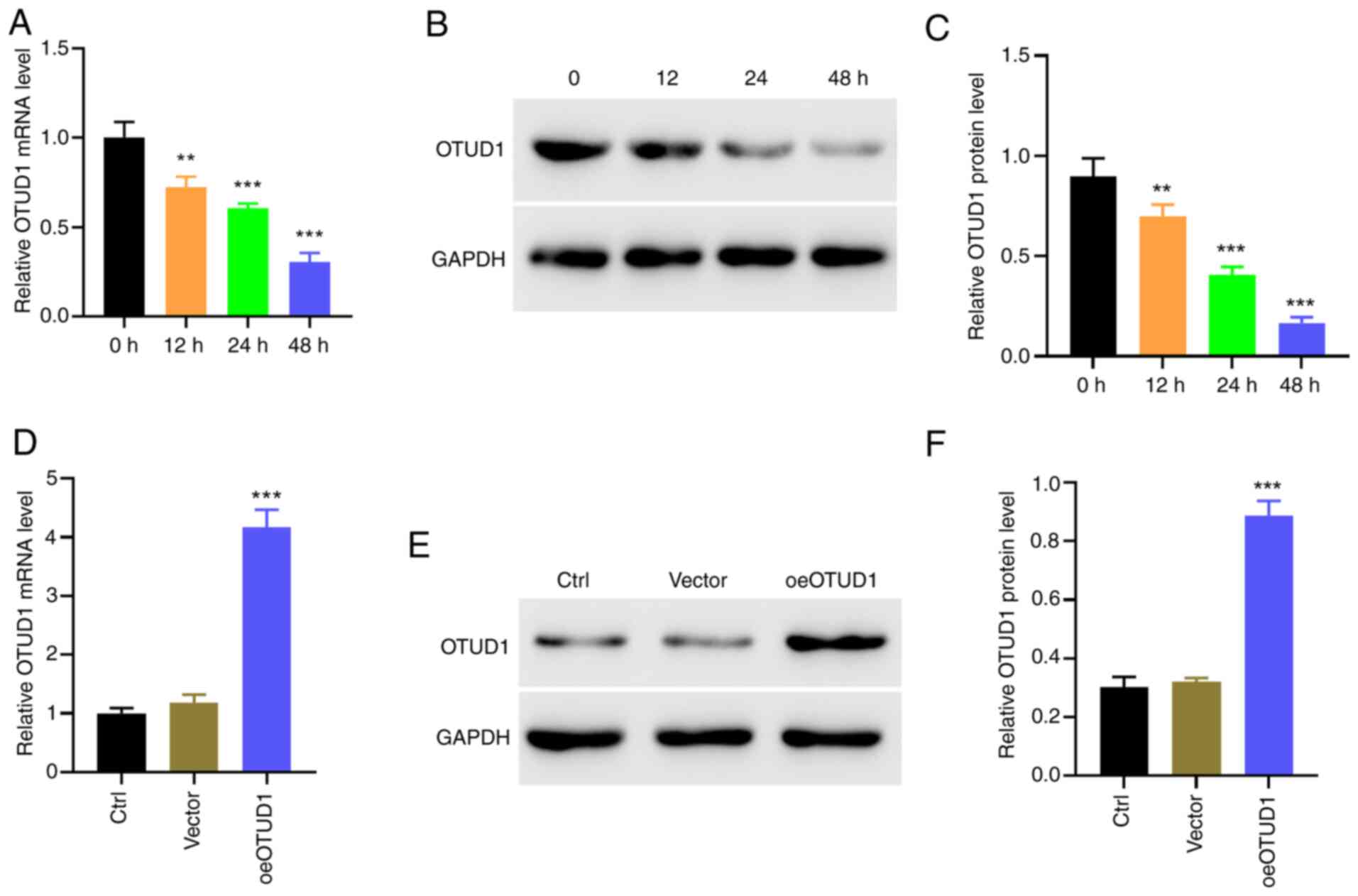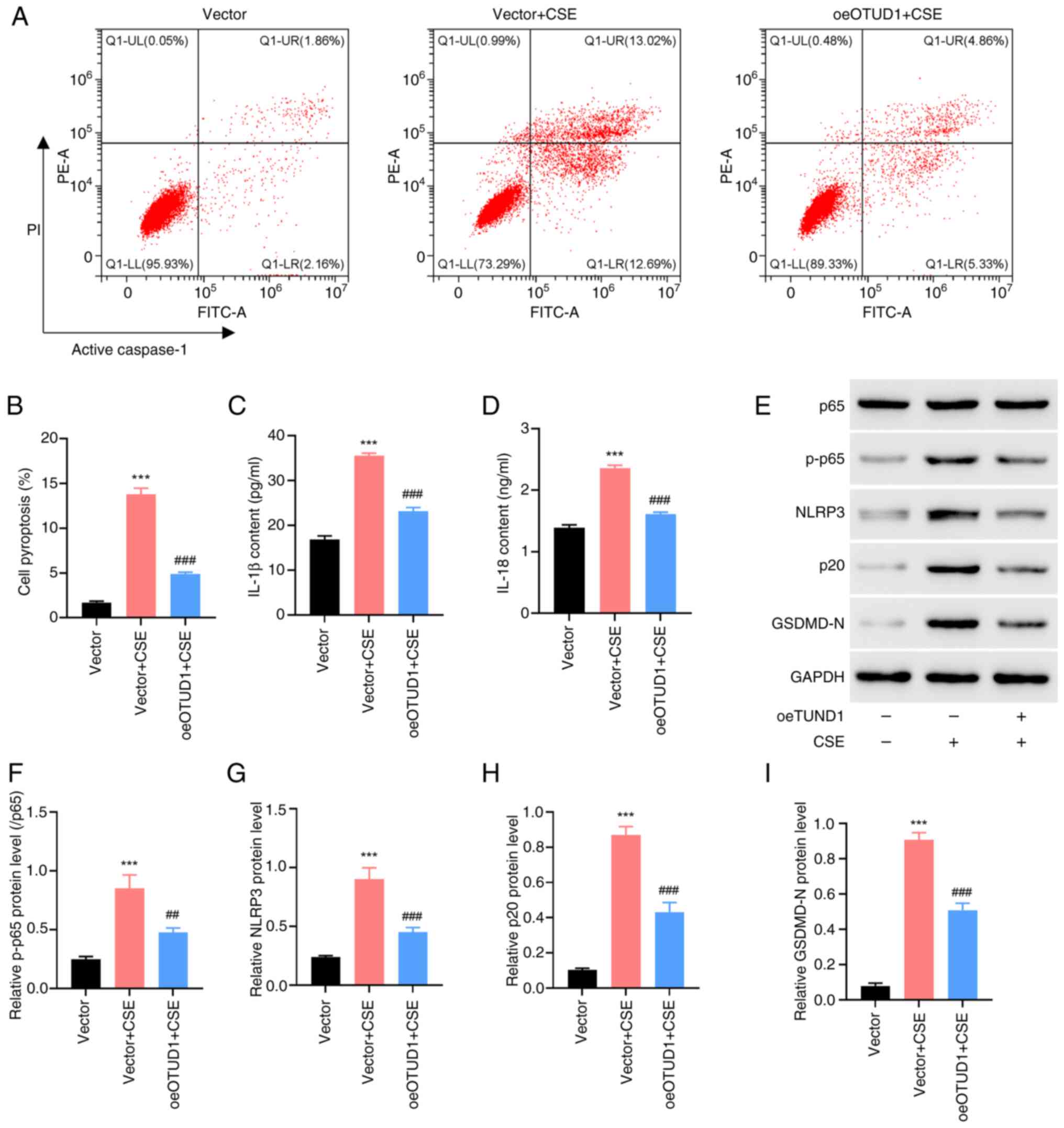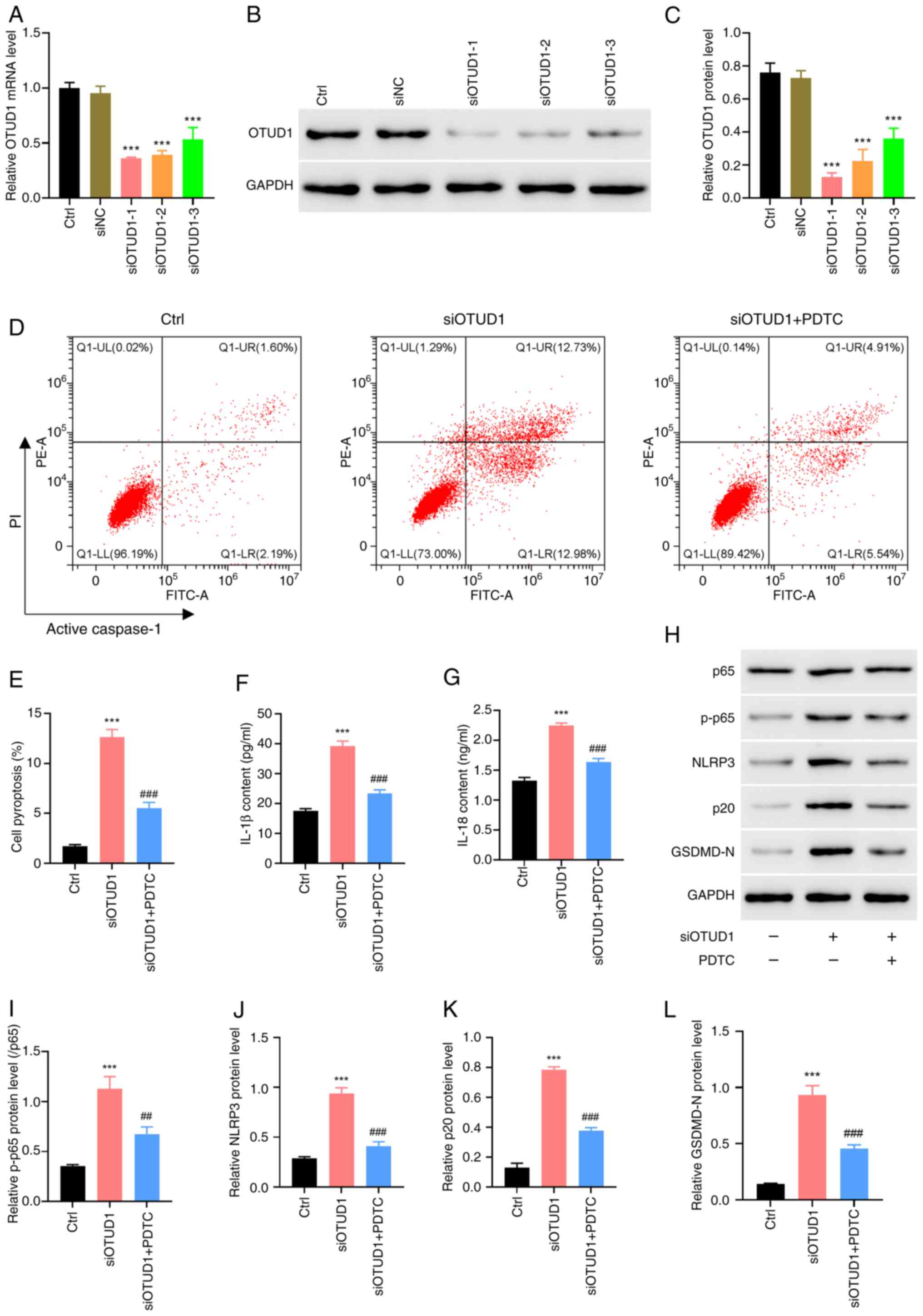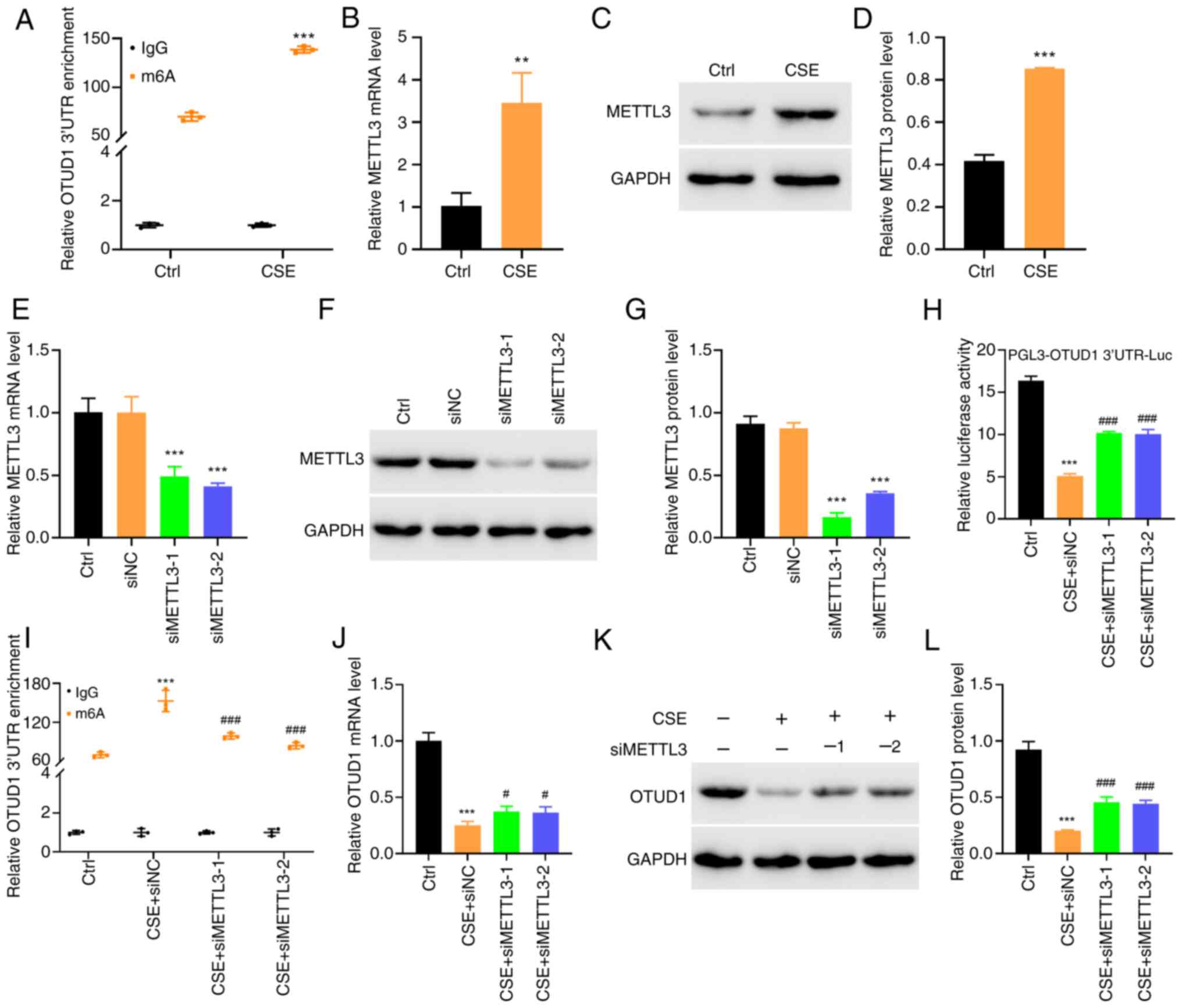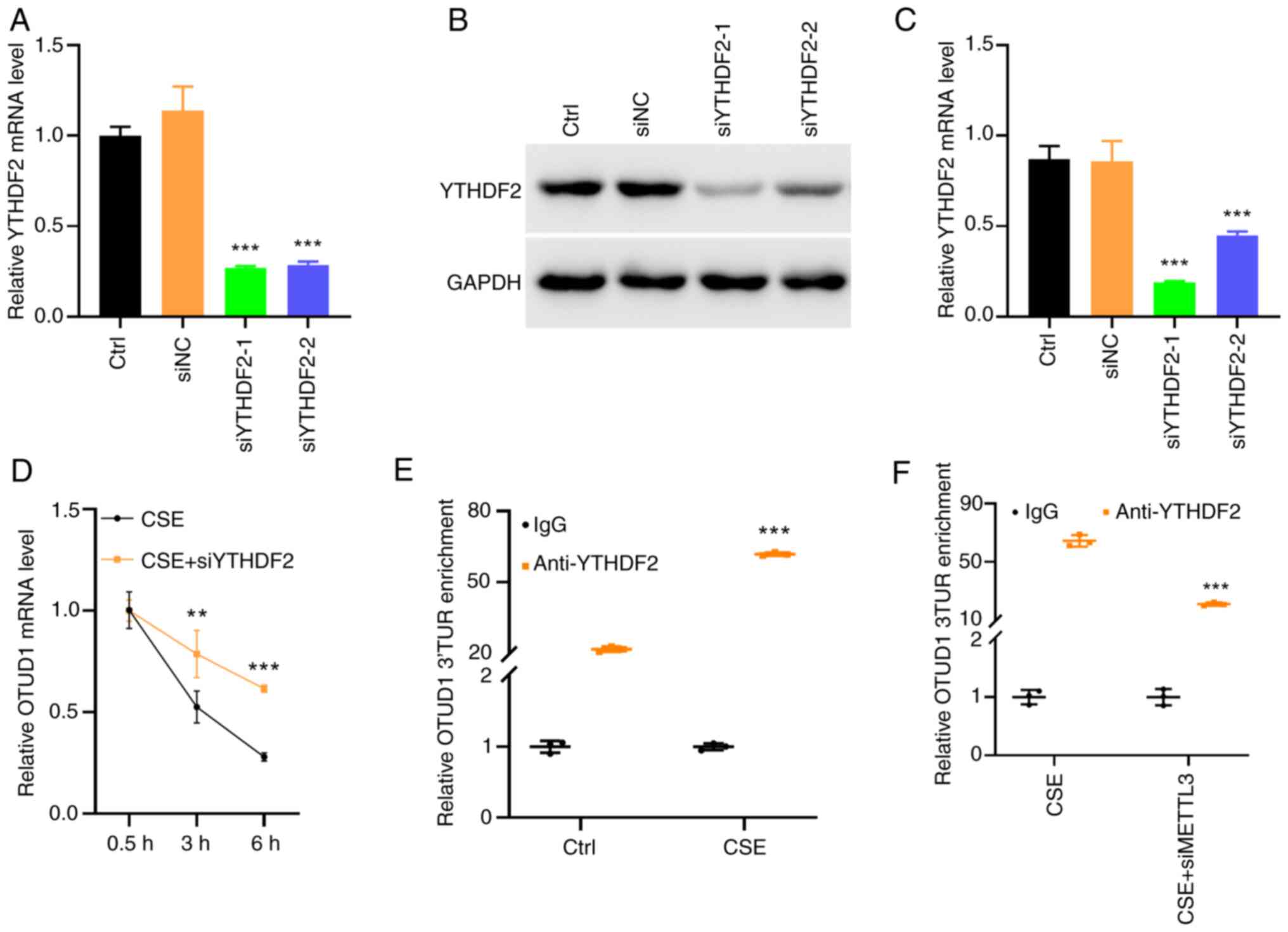|
1
|
Agustí A, Celli BR, Criner GJ, Halpin D,
Anzueto A, Barnes P, Bourbeau J, Han MK, Martinez FJ, Montes de Oca
M, et al: Global initiative for chronic obstructive lung disease
2023 report: GOLD executive summary. Eur Respir J. 61:23002392023.
View Article : Google Scholar : PubMed/NCBI
|
|
2
|
Brandsma CA, Van den Berge M, Hackett TL,
Brusselle G and Timens W: Recent advances in chronic obstructive
pulmonary disease pathogenesis: From disease mechanisms to
precision medicine. J Pathol. 250:624–635. 2020. View Article : Google Scholar : PubMed/NCBI
|
|
3
|
Su X, Wu W, Zhu Z, Lin X and Zeng Y: The
effects of epithelial-mesenchymal transitions in COPD induced by
cigarette smoke: An update. Respir Res. 23:2252022. View Article : Google Scholar : PubMed/NCBI
|
|
4
|
GBD Chronic Respiratory Disease
Collaborators, . Prevalence and attributable health burden of
chronic respiratory diseases, 1990–2017: A systematic analysis for
the global burden of disease study 2017. Lancet Respir Med.
8:585–596. 2020. View Article : Google Scholar : PubMed/NCBI
|
|
5
|
Madawala S, Quach A, Lim JY, Varatharaj S,
Perera B, Osadnik C and Barton C: Healthcare experience of adults
with COPD during the COVID-19 pandemic: A rapid review of
international literature. BMJ Open Respir Res. 10:e0015142023.
View Article : Google Scholar : PubMed/NCBI
|
|
6
|
Rabbani G, Shariful Islam SM, Rahman MA,
Amin N, Marzan B, Robin RC and Alif SM: Pre-existing COPD is
associated with an increased risk of mortality and severity in
COVID-19: A rapid systematic review and meta-analysis. Expert Rev
Respir Med. 15:705–716. 2021. View Article : Google Scholar : PubMed/NCBI
|
|
7
|
GBD 2017 Risk Factor Collaborators, .
Global, regional, and national comparative risk assessment of 84
behavioural, environmental and occupational, and metabolic risks or
clusters of risks for 195 countries and territories, 1990–2017: A
systematic analysis for the global burden of disease study 2017.
Lancet. 392:1923–1994. 2018. View Article : Google Scholar : PubMed/NCBI
|
|
8
|
GBD 2019 Tobacco Collaborators, . Spatial,
temporal, and demographic patterns in prevalence of smoking tobacco
use and attributable disease burden in 204 countries and
territories, 1990–2019: A systematic analysis from the global
burden of disease study 2019. Lancet. 397:2337–2360. 2021.
View Article : Google Scholar : PubMed/NCBI
|
|
9
|
Niu Y, Niu H, Meng X, Zhu Y, Ren X, He R,
Wu H, Yu T, Zhang Y, Kan H, et al: Associations between air
pollution and the onset of acute exacerbations of COPD: A
time-stratified case-crossover study in China. Chest. 166:998–1009.
2024. View Article : Google Scholar : PubMed/NCBI
|
|
10
|
Pathak U, Gupta NC and Suri JC: Risk of
COPD due to indoor air pollution from biomass cooking fuel: A
systematic review and meta-analysis. Int J Environ Health Res.
30:75–88. 2020. View Article : Google Scholar : PubMed/NCBI
|
|
11
|
Xing Z, Yang T, Shi S, Meng X, Chai D, Liu
W, Tong Y, Wang Y, Ma Y, Pan M, et al: Combined effect of ozone and
household air pollution on COPD in people aged less than 50 years
old. Thorax. 79:35–42. 2023. View Article : Google Scholar : PubMed/NCBI
|
|
12
|
Lamichhane DK, Leem JH and Kim HC:
Associations between ambient particulate matter and nitrogen
dioxide and chronic obstructive pulmonary diseases in adults and
effect modification by demographic and lifestyle factors. Int J
Environ Res Public Health. 15:3632018. View Article : Google Scholar : PubMed/NCBI
|
|
13
|
Shakeel I, Ashraf A, Afzal M, Sohal SS,
Islam A, Kazim SN and Hassan MI: The molecular blueprint for
chronic obstructive pulmonary disease (COPD): A new paradigm for
diagnosis and therapeutics. Oxid Med Cell Longev. 2023:22975592023.
View Article : Google Scholar : PubMed/NCBI
|
|
14
|
Ming T, Liu H, Yuan M, Tian J, Fang Q, Liu
Y, Kong Q, Wang Q, Song X, Xia Z and Wu X: The deubiquitinase OTUD1
deubiquitinates TIPE2 and plays a protective role in sepsis-induced
lung injury by targeting TAK1-mediated MAPK and NF-κB signaling.
Biochem Pharmacol. 227:1164182024. View Article : Google Scholar : PubMed/NCBI
|
|
15
|
Ma X, Wang L, Shi G and Sun S: The
deubiquitinase OTUD1 inhibits non-small cell lung cancer
progression by deubiquitinating and stabilizing KLF4. Thorac
Cancer. 13:761–770. 2022. View Article : Google Scholar : PubMed/NCBI
|
|
16
|
Zhang Q, Li J, Chen Z, Jiang K, Yang K,
Huang F, Huang A, Zhang X, Zhang J and Wang H: VE-822 upregulates
the deubiquitinase OTUD1 to stabilize FHL1 to inhibit the
progression of lung adenocarcinoma. Cell Oncol (Dordr).
46:1001–1014. 2023. View Article : Google Scholar : PubMed/NCBI
|
|
17
|
Wu B, Qiang L, Zhang Y, Fu Y, Zhao M, Lei
Z, Lu Z, Wei YG, Dai H, Ge Y, et al: The deubiquitinase OTUD1
inhibits colonic inflammation by suppressing RIPK1-mediated NF-κB
signaling. Cell Mol Immunol. 19:276–289. 2022. View Article : Google Scholar : PubMed/NCBI
|
|
18
|
Zheng S, Li Y, Song X, Wu M, Yu L, Huang
G, Liu T, Zhang L, Shang M, Zhu Q, et al: OTUD1 ameliorates
cerebral ischemic injury through inhibiting inflammation by
disrupting K63-linked deubiquitination of RIP2. J
Neuroinflammation. 20:2812023. View Article : Google Scholar : PubMed/NCBI
|
|
19
|
Yang Y, Fei Y, Xu X, Yao J, Wang J, Liu C
and Ding H: Shikonin attenuates cerebral ischemia/reperfusion
injury via inhibiting NOD2/RIP2/NF-κB-mediated microglia
polarization and neuroinflammation. J Stroke Cerebrovasc Dis.
33:1076892024. View Article : Google Scholar : PubMed/NCBI
|
|
20
|
Zhong R, Wen C, Qiu Y, Shen X, Sun Z, Peng
L, Liu T, Huang S and Peng X: Anti-inflammatory and
immunomodulatory effects of Glycyrrhiza uralensis fisch. On
ulcerative colitis in rats: Role of nucleotide-binding
oligomerization domain 2/receptor-interacting protein 2/nuclear
factor-kappa B signaling pathway. J Ethnopharmacol. 344:1194572025.
View Article : Google Scholar : PubMed/NCBI
|
|
21
|
Zhang C, Chen L, Peng D, Jiang A, He Y,
Zeng Y, Xie C, Zhou H, Luo X, Liu H, et al: METTL3 and
N6-methyladenosine promote homologous recombination-mediated repair
of DSBs by modulating DNA-RNA hybrid accumulation. Mol Cell.
79:425–442.e7. 2020. View Article : Google Scholar : PubMed/NCBI
|
|
22
|
Zhang Y, Wang L, Yan F, Yang M, Gao H and
Zeng Y: Mettl3 mediated m6A methylation involved in
epithelial-mesenchymal transition by targeting SOCS3/STAT3/SNAI1 in
cigarette smoking-induced COPD. Int J Chron Obstruct Pulmon Dis.
18:1007–1017. 2023. View Article : Google Scholar : PubMed/NCBI
|
|
23
|
Song L, Liu H, Yang W, Yin H, Wang J, Guo
M and Yang Z: Biological functions of the m6A reader YTHDF2 and its
role in central nervous system disorders. Biochem Pharmacol.
230:1165762024. View Article : Google Scholar : PubMed/NCBI
|
|
24
|
Gao L, Lv G, Liu Z, Tian Y, Han F, Li L,
Wang G and Zhang Y: Alcohol-induced C/EBP β-driven VIRMA decreases
oxidative stress and promotes pancreatic ductal adenocarcinoma
growth and metastasis via the m6A/YTHDF2/SLC43A2 pathway. Oncogene.
44:1118–1132. 2025. View Article : Google Scholar : PubMed/NCBI
|
|
25
|
Shuai Y, Ma Z, Ju J, Li C, Bai X, Yue J,
Wang X, Yuan P and Qian H: The N6-methyladenosine writer METTL3
promotes breast cancer progression through YTHDF2-dependent
posttranscriptional silencing of GSDMD. Apoptosis. 30:226–238.
2025. View Article : Google Scholar : PubMed/NCBI
|
|
26
|
Cau SBA, Guimaraes DA, Rizzi E, Ceron CS,
Souza LL, Tirapelli CR, Gerlach RF and Tanus-Santos JE: Pyrrolidine
dithiocarbamate down-regulates vascular matrix metalloproteinases
and ameliorates vascular dysfunction and remodelling in
renovascular hypertension. Br J Pharmacol. 164:372–381. 2011.
View Article : Google Scholar : PubMed/NCBI
|
|
27
|
Livak KJ and Schmittgen TD: Analysis of
relative gene expression data using real-time quantitative PCR and
the 2(−Delta Delta C(T)) method. Methods. 25:402–408. 2001.
View Article : Google Scholar : PubMed/NCBI
|
|
28
|
Ezzie ME, Crawford M, Cho JH, Orellana R,
Zhang S, Gelinas R, Batte K, Yu L, Nuovo G, Galas D, et al: Gene
expression networks in COPD: microRNA and mRNA regulation. Thorax.
67:122–131. 2012. View Article : Google Scholar : PubMed/NCBI
|
|
29
|
Faner R, Cruz T, Casserras T,
López-Giraldo A, Noell G, Coca I, Tal-Singer R, Miller B,
Rodriguez-Roisin R, Spira A, et al: Network analysis of lung
transcriptomics reveals a distinct B-cell signature in emphysema.
Am J Respir Crit Care Med. 193:1242–1253. 2016. View Article : Google Scholar : PubMed/NCBI
|
|
30
|
Xia H, Wu Y, Zhao J, Cheng C, Lin J, Yang
Y, Lu L, Xiang Q, Bian T and Liu Q: N6-Methyladenosine-modified
circSAV1 triggers ferroptosis in COPD through recruiting YTHDF1 to
facilitate the translation of IREB2. Cell Death Differ.
30:1293–1304. 2023. View Article : Google Scholar : PubMed/NCBI
|
|
31
|
Huang K, Sun X, Xu X, Lu J, Zhang B, Li Q,
Wang C, Ding S, Huang X, Liu X, et al: METTL3-mediated m6A
modification of OTUD1 aggravates press overload induced myocardial
hypertrophy by deubiquitinating PGAM5. Int J Biol Sci.
20:4908–4921. 2024. View Article : Google Scholar : PubMed/NCBI
|
|
32
|
Jing H, Song J, Sun J, Su S, Hu J, Zhang
H, Bi Y and Wu B: METTL3 governs thymocyte development and thymic
involution by regulating ferroptosis. Nat Aging. 4:1813–1827. 2024.
View Article : Google Scholar : PubMed/NCBI
|
|
33
|
Chen J, Wang T, Li X, Gao L, Wang K, Cheng
M, Zeng Z, Chen L, Shen Y and Wen F: DNA of neutrophil
extracellular traps promote NF-κB-dependent autoimmunity via
cGAS/TLR9 in chronic obstructive pulmonary disease. Signal
Transduct Target Ther. 9:1632024. View Article : Google Scholar : PubMed/NCBI
|
|
34
|
Oikawa D, Gi M, Kosako H, Shimizu K,
Takahashi H, Shiota M, Hosomi S, Komakura K, Wanibuchi H, Tsuruta
D, et al: OTUD1 deubiquitinase regulates NF-κB- and KEAP1-mediated
inflammatory responses and reactive oxygen species-associated cell
death pathways. Cell Death Dis. 13:6942022. View Article : Google Scholar : PubMed/NCBI
|
|
35
|
Oikawa D, Shimizu K and Tokunaga F:
Pleiotropic roles of a KEAP1-associated deubiquitinase, OTUD1.
Antioxidants (Basel). 12:3502023. View Article : Google Scholar : PubMed/NCBI
|
|
36
|
Liu Y, Yang D, Liu T, Chen J, Yu J and Yi
P: N6-methyladenosine-mediated gene regulation and therapeutic
implications. Trends Mol Med. 29:454–467. 2023. View Article : Google Scholar : PubMed/NCBI
|
|
37
|
Su X, Lu R, Qu Y and Mu D: Diagnostic and
therapeutic potentials of methyltransferase-like 3 in liver
diseases. Biomed Pharmacother. 172:1161572024. View Article : Google Scholar : PubMed/NCBI
|
|
38
|
Su X, Lu R, Qu Y and Mu D:
Methyltransferase-like 3 mediated RNA m6 A modifications
in the reproductive system: Potentials for diagnosis and therapy. J
Cell Mol Med. 28:e181282024. View Article : Google Scholar : PubMed/NCBI
|
|
39
|
Ledford H: How air pollution causes lung
cancer-without harming DNA. Nature. 616:419–420. 2023. View Article : Google Scholar : PubMed/NCBI
|
|
40
|
Su X, Feng Y, Qu Y and Mu D: Association
between methyltransferase-like 3 and non-small cell lung cancer:
Pathogenesis, therapeutic resistance, and clinical applications.
Transl Lung Cancer Res. 13:1121–1136. 2024. View Article : Google Scholar : PubMed/NCBI
|
|
41
|
Wang Q, Shen J, Luo S, Yuan Z, Wei S, Li
Q, Yang Q, Luo Y and Zhuang L: METTL3-m6A methylation inhibits the
proliferation and viability of type II alveolar epithelial cells in
acute lung injury by enhancing the stability and translation
efficiency of Pten mRNA. Respir Res. 25:2762024. View Article : Google Scholar : PubMed/NCBI
|
|
42
|
Ambrosino P, Vitacca M, Marcuccio G,
Spanevello A, Ambrosino N and Maniscalco M: A comparison of GOLD
and STAR severity stages in individuals with COPD undergoing
pulmonary rehabilitation. Chest. 167:387–401. 2025. View Article : Google Scholar : PubMed/NCBI
|
|
43
|
Zhang Z, Fan Y, Xie F, Zhou H, Jin K, Shao
L, Shi W, Fang P, Yang B, van Dam H, et al: Breast cancer
metastasis suppressor OTUD1 deubiquitinates SMAD7. Nat Commun.
8:21162017. View Article : Google Scholar : PubMed/NCBI
|
|
44
|
Liu H, Zhong L, Lu Y, Liu X, Wei J, Ding
Y, Huang H, Nie Q and Liao X: Deubiquitylase OTUD1 confers
Erlotinib sensitivity in non-small cell lung cancer through
inhibition of nuclear translocation of YAP1. Cell Death Discov.
8:4032022. View Article : Google Scholar : PubMed/NCBI
|
|
45
|
Zhou T, Wu Y, Qian D, Tang H, Liu X, Qiu
J, Wang D, Hong W, Meng X and Zheng Q: OTUD1 chemosensitizes
triple-negative breast cancer to doxorubicin by modulating P16
expression. Pathol Res Pract. 247:1545712023. View Article : Google Scholar : PubMed/NCBI
|
|
46
|
Xie W, Luo B and Zhang L: Effect of AMPK
on the apoptosis in NHBE cells of COPD induced by CSE. China J Mod
Med. 24:28–33. 2014.
|















